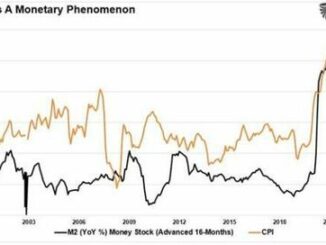
Most climate scientists agree that we have some climate impact. This does not at all justify the rapid elimination of fossil fuels.
Myth: 97% of climate scientists agree that we face a climate crisis that requires the rapid elimination of fossil fuels.
Truth: Most climate scientists agree that we have some climate impact. This does not at all justify the rapid elimination of fossil fuels.
If you’ve ever expressed the least bit of skepticism about calls to rapidly eliminate fossil fuel use to prevent a “climate crisis,” you’ve probably heard the smug response: “97% of climate scientists agree that climate change is real and human-caused.”This response is inane.
While “97% of climate scientists agree” is presented as a logical, scientific argument against fossil fuels, it’s an illogical, unscientific argument that1. Falsely equates some climate impact with catastrophic climate impact2. Ignores the huge benefits of fossil fuels
“97%” fallacy 1: falsely equating consensus about some climate impact with consensus about catastrophic climate impactThere is consensus that fossil fuel use has some climate impact, but the “97%” claim is used to make you believe the consensus on catastrophic impact.
The usual purpose of saying “97% of climate scientists agree that climate change is real and human-caused” is to make you believe our climate impact is catastrophic—a “climate crisis.”But neither the statement itself nor the studies it’s based on say our impact is catastrophic.
Notice how insignificant the “97%” refrain is: “97% percent of climate scientists agree that climate change is real and human-caused.” It tells us nothing about the change’s magnitude or danger. In fact, it’s consistent with mild, manageable, and economically beneficial change.
The basis of the “97% of climate scientists agree” claims consists of surveys of the field of climate science, such as looking at a large collection of papers and quantifying how many explicitly or implicitly claim that human beings are having some sort of impact on climate.
The “97%” surveys either agree on some unspecified impact or, at most, attribute rising CO2 levels so far as the leading cause (over 50 percent) of the mild 1°C warming we have experienced to date.But they are abused to claim 97% agreement on catastrophic climate impact.
“97%” abuser John Kerry has falsely equated:“97% of climate scientists have confirmed that climate change is happening and that human activity is responsible.”
With:
“if we continue to go down the same path…the world as we know it will…change dramatically for the worse.”¹
“97%” abuser Barack Obama, in response to a study that said “97.1% endorsed the consensus position that humans are causing global warming,” Tweeted “Ninety-seven percent of scientists agree: #climate change is real, man-made and dangerous”—just adding “dangerous” from nowhere.²
“97%” abuser Al Gore took a study about papers agreeing with the idea that “Earth’s climate is being affected by human activities” and misrepresented it to mean “we’re causing global warming and that it’s a serious problem”—adding “serious problem” from nowhere.³
“97%” abuser The American Association for the Advancement of Science (AAAS) falsely equates “97% of climate scientists have concluded that human-caused climate change is happening” with “highly damaging impacts” that we should avoid.⁴https://whatweknow.aaas.org/get-the-facts/
Going beyond “97%,” “99%” abuser The Guardian took a paper claiming 99% agreement on humans impacting climate to some extent to mean “99.9% of scientists agree climate emergency caused by humans.” The “emergency” was just added because The Guardian felt like it.⁵
The 2021 paper found that an overwhelming number of papers sampled agreed with human impact on global warming, but most would not even quantify the human share of warming. This “consensus” definition is extremely vague and has no “emergency” or policy implications at all. ⁶
Revealingly, Mark Lynas, lead author of the paper The Guardian falsely labeled as a 99% endorsement of climate emergency, promoted this misrepresentation instead of correcting it, falsely concluding that “undermining the case for action on climate change is not based on science.”⁷
Lynas, like many other authors of “consensus” studies (including Naomi Oreskes and John Cook) is clearly motivated by the desire to use insignificant consensus about some climate impact to drive their desired catastrophe narrative and anti-fossil-fuel political outcome.⁸
97% fallacy 2: It ignores the huge benefits, including climate benefits, of fossil fuelsBy being coupled with the refrain “listen to the scientists,” the “97%” claim is designed to make you only look at the climate side-effects of fossil fuels when making policy—ignoring fossil fuels’ benefits.
The “97%” consensus as defined by the various papers seeking to find agreement among scientists is weak. It doesn’t show consensus about the magnitude and danger of impacts. But even if it did, this would only be part of the relevant information to make an energy policy decision.
“Listen to the scientists” on fossil fuel policy sounds compelling, because clearly we need information from climate scientists. But these scientists themselves are not qualified to make fossil fuel policy, because that depends on multiple fields, e.g., energy, economics, and adaptation.
Policymaking must factor in that fossil fuels provide over 80% of global energy in a world that is desperately short of energy. 3 billion humans use less electricity than a typical American refrigerator, and billions more use amounts of energy that are unacceptable to Americans.⁹
Policymaking must factor in that fossil fuels have expanded human life expectancy by decades, made us healthier, our environments cleaner, and all of us safer from climate. “Climate” policies that would diminish or destroy these benefits would themselves be catastrophic.¹⁰
Fossil fuels actually overall make us far safer from climate by providing low-cost energy for the amazing machines that protect us against storms, protect us against extreme temperatures, and alleviate drought. Climate disaster deaths have decreased 98% over the last century.¹¹
But the “97% consensus” abusers try to avoid the discussion about fossil fuel benefits by pretending that the only relevant issue is whether fossil fuels have climate-side-effects—and so we should just “listen to” the anti-fossil fuel views of their preferred scientists.
An example of the peril of “listen to the scientists”: climate scientist Michael Mann’s book on fossil fuels and climate doesn’t once mention the essential benefit of fossil fuel use to the availability of food—even though 8 billion people depend on diesel machinery and natgas fertilizer to eat!¹²
Summary: Using “97% of climate scientists agree that climate change is real and human-caused” to argue against fossil fuels is illogical and unscientific. It:1. Falsely equates some climate impact with catastrophic climate impact
2. Ignores the huge benefits of fossil fuels
If someone tries to intimidate you into opposing fossil fuels by saying “97% of climate scientists agree,” trying asking them:1. What exactly do they agree about—do they agree there’s a “climate crisis”?
2. Do you agree we should also factor in the benefits of fossil fuels?
11 For every million people on earth, annual deaths from climate-related causes (extreme temperature, drought, flood, storms, wildfires) declined 98%–from an average of 247 per year during the 1920s to 2.5 in per year during the 2010s.
Data on disaster deaths come from EM-DAT, CRED / UCLouvain, Brussels, Belgium – www.emdat.be (D. Guha-Sapir).
Population estimates for the 1920s from the Maddison Database 2010 come from the Groningen Growth and Development Centre, Faculty of Economics and Business at University of Groningen. For years not shown, population is assumed to have grown at a steady rate.
Population estimates for the 2010s come from World Bank Data.
Share This:



